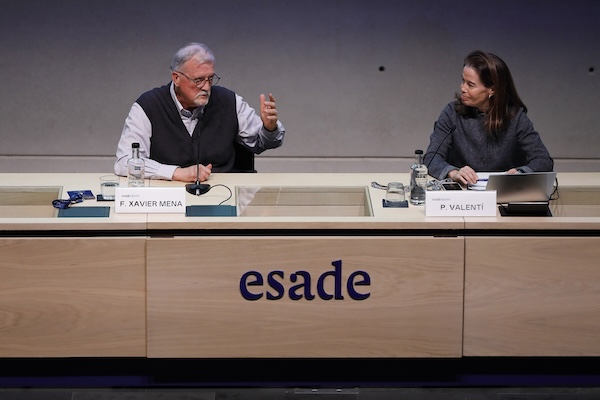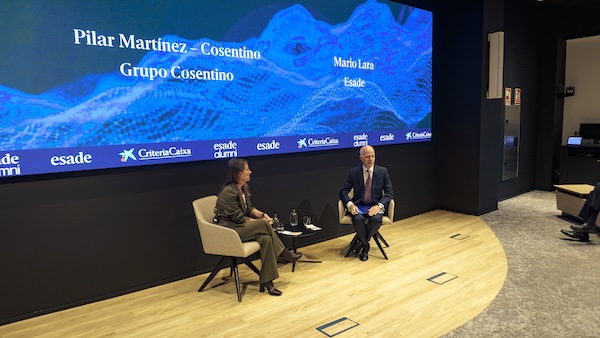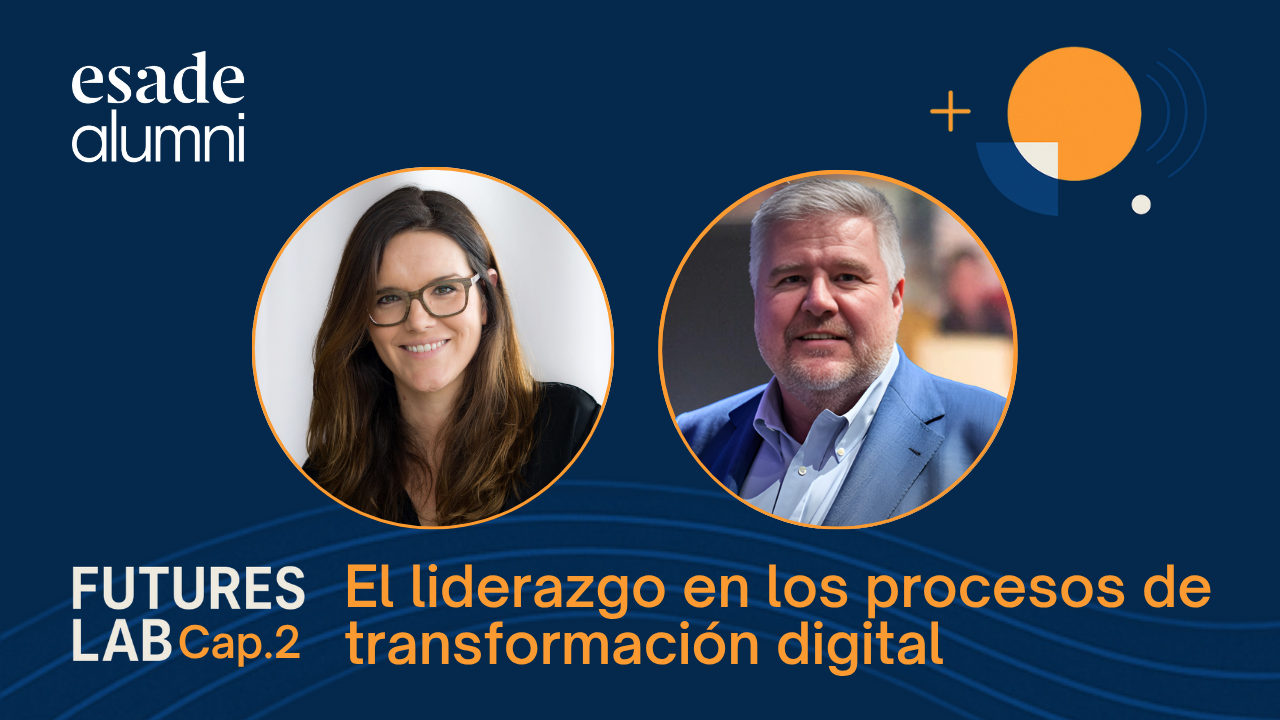
Ever since the economy began to heat up again last year, thousands of workers in the United States have left their jobs voluntarily each day. The pace of resignations reached an all-time high last November, a month that saw 4.5 million Americans leave their jobs, according to the US Bureau of Labor Statistics.
This complex phenomenon is still being analysed to understand what factors may have driven it. Francisco Loscos, Lecturer in the Department of People Management and Organisation at Esade, addressed this topic at a recent Refresher Programme session entitled “Leadership During the ‘Great Resignation’ of Talent”.
Many companies have resigned themselves to this phenomenon and are unsure how to react. The first step, however, is to analyse how we got here. “One in four people in the United States has disengaged from their company, resulting in a drain on talent,” noted José Antonio González (Senior Executive Programme ‘08), President of the Esade Alumni People and Organisation Management Club, during his introductory remarks.“Those of us who work in human resources are not resigned to this happening at our companies. We want to understand and fight to prevent this from occurring.”

“The ‘Great Resignation’ is a massive outflow of talent from organisations,” commented Loscos. “It is the result of a slow but inexorable process of not having known how to appropriately manage the balance between the needs of the organisation and the needs of people.”
Are organisations managing these new realities with today’s instruments, or with those of the past? “Managing today’s people with yesterday’s instruments does not work,” noted Loscos. “Human resources departments must adapt their processes, as other divisions have done. The root of this problem is the inability to interpret the collision between the value propositions of organisations and the value demands that employees make of organisations.”
Matching purposes
First and foremost, we must ask ourselves who still believes in work when the weekend has become a golden dream and retirement is the ultimate goal. “Something has gone awry with regard to connecting people’s purposes with the purposes of organisations,” noted Loscos.
The reason for this is that people are changing. “When we talk about surplus value, we no longer think about it in terms of profit, but rather in terms of the surplus value of life,” said Loscos. “When workers feel that they have moved away from the purpose of what they are producing, they leave. The purpose of life is the modern surplus value.”
Flexibility and adaptability must be a part of organisations, because the levels of emotional disconnection of talent are starting to be cause for concern. Therefore, according to Loscos, talent leadership will therefore require new visions of time and space.
Remote work: the straw that broke the camel’s back
In this scenario, remote work is the straw that broke the camel’s back, because it has transformed the system. “Remote work is a production system,” explained Loscos. “We now have a different way of organising work. We are richer in terms of work models. But we mustn’t build a motivational system out of this. Remote work may or may not be feasible, depending on the characteristics of the organisation. It is up to the leader to make this decision and explain it to the workers. If remote work can be done, it should be done confidently. If it can’t be done, then don’t do it.”
According to Loscos, people don’t leave their jobs because of the schedule or because of the remote work policy: “If people leave for these reasons, it means that something is not working in the organisation. It is probably a deeper problem, something that you have not understood. You’re not connecting with that person. You need to understand how your staff are feeling in order to have an impact on them. You need to be aware that everyone is unique.”
Loscos does not foresee the Great Resignation coming to Spain, due to the country’s high unemployment rate. “Spain is a country where seniority rules,” he added. “Moreover, we have a culture that is reluctant to embrace change. All this adds up to few people being willing to quit.”
Nevertheless, if not managed properly, the Great Resignation generates a sense of resignation and spaces of distrust, disengagement and demotivation. Against this backdrop, a growing chorus of voices has begun to highlight the importance of caring for employee well-being. Indeed, caring is one of the great challenges for the next five years. Organisations that know how to care will be the ones that succeed. But what does caring mean? According to Loscos, we must understand caring as the ability to give confidence; to build a culture that encompasses an optimal vision of both people’s happiness and the needs of the organisation.
Initiatives such as well-being or happiness policies are a step in the right direction, but they must be well-grounded. “People analytics is a data-driven research method that aims to study a company’s people and determine what is going on within the organisation,” noted Loscos. “Since no one here is leaving, let’s focus on building.”
|

José Antonio González (Senior Executive Programme ‘08), President of the Esade Alumni People and Organisation Management Club
What did you think of the session?
It was extraordinarily interesting. It was a pleasure to introduce the session and soak up Francisco Loscos’s knowledge. The topic he chose was bold, sociologically impactful and not easy to interpret. The pace of change, the complexity of how globalisation affects companies’ operations, and totally unexpected disruptions such as the pandemic have caused a mass exodus from American companies that is undoubtedly based on the emotional disconnection of professionals from their employers. Loscos delved into this difficult issue, linking it to generational changes, the impact of emotions on engagement and the need to connect personal purposes to those of companies with a view to re-establishing a connection with the project. He also explained how the Spanish labour market has two factors that prevent this from happening: the attachment of many professionals to the privileges that come with seniority, often despite their evident dissatisfaction with what they do, and the high rate of unemployment.
What tools are companies using to manage talent in today’s environment?
In line with what Loscos mentioned during the session, companies are starting to use new talent management tools based on two parameters: the interplay between the needs of professionals and the needs of the organisation, and the emotional connection. Critical elements of people management – such as the remuneration system, the form of recruitment and performance evaluation – have become matters of hygiene. The companies that stand out today as attractive places to work are those which are implementing systems that make it easier for professionals to pursue their dream career from the inside. For this to be possible, you have to know the people who work with you well, understand their potential, give them a way to develop it and create a safe, sustainable and inspiring work environment. Artificial intelligence and big data can do a lot to help you read between the lines of who your best people are, what they want and what they need. Flexibility and continuous feedback tools allow you to solve the equation. The same policies are not valid for all professionals. You have to differentiate and find the right people management model for each individual, within the framework of the needs of the business.
|




































